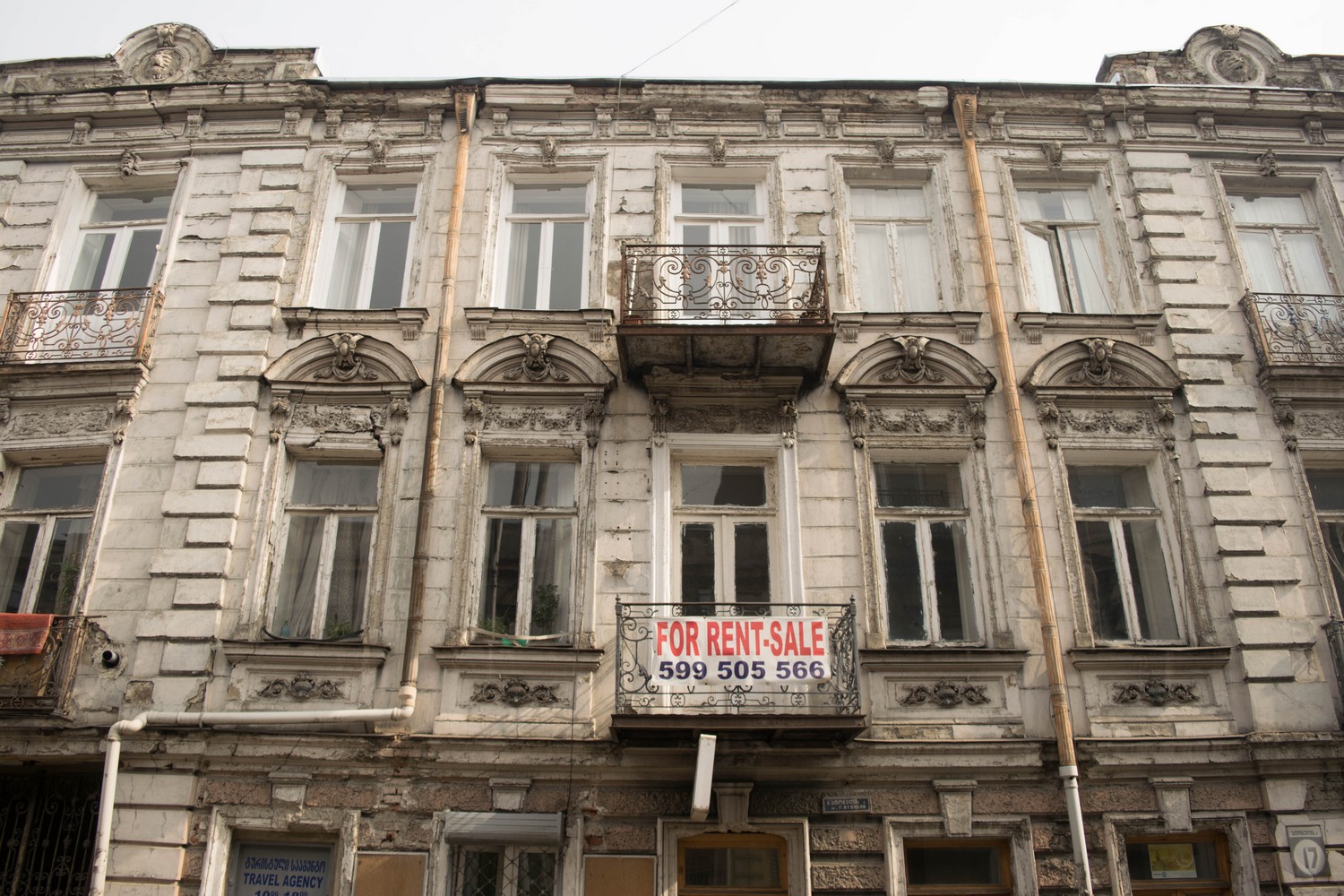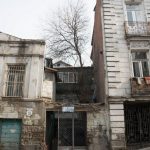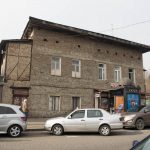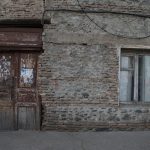

 Families and businesses are facing imminent eviction to make way for renovations. Despite plans to begin the work in March, residents and business owners are yet to receive details from the city, throwing their futures into uncertainty and chaos.
Families and businesses are facing imminent eviction to make way for renovations. Despite plans to begin the work in March, residents and business owners are yet to receive details from the city, throwing their futures into uncertainty and chaos.
Several families in one of Tbilisi’s oldest districts will be relocated by Tbilisi City Hall for almost a year until restoration works are finished. As the City has not provided them with details about the process, residents in the area surrounding Orbeliani Square and the Dry Bridge, along with several small and medium-size enterprises, are stuck in limbo.
Tens of socially vulnerable people live in one building on Atoneli street near Orbeliani Square. Dodo is one of the residents in the former secondary school (Luka Pertaia/OC Media)
Dodo, a woman in her fifties who can barely stand without a stick, has been living in a building on Atoneli Street since October 2012, when tens of socially vulnerable, homeless, families entered the building. Today, 31 families, around 120 people in total, live in the building, formerly School No. 68. Some of the squatters have disabilities and face difficult living conditions, without gas, and with barely enough money for food.
‘Just a week ago, we were told by some people from the municipal government that the City Hall would move us from here. They said that we should sign an agreement with them. They promised that we could return in about a year’, Dodo and her neighbour Gulnazi told OC Media. However, they was very sceptical about the whole process: ‘Why did they not tell us about these plans earlier? I don’t think that they are going to let us come back here’, Gulnaz said doubtfully.
A middle-aged woman living in the former School #68 shows her family’s living conditions. ‘I found this mattress in the street’, she says. Her nine-year-old granddaughter sleeps here. Eight people share three rooms. (Luka Pertaia/OC Media)
Dodo and Gulnaz’s families, along with six other households, live in rooms which overlook Atoneli Street from the left. They were told that only these eight families will have to move. However, where they will go is still unknown to them, even though the restoration works will start soon and they will have to leave their newly acquired house.
Rehabilitation of the Orbeliani (formerly Kolmeurneoba) Square and the Dry Bridge area is the second stage of the New Tiflis (Akhali Tpilisi) Project, planned by the Tbilisi Development Fund (TDF), a subsidiary organisation of Tbilisi City Hall. The first stage of the project was finished in autumn 2016, when historical buildings in the second half of Aghmashenebeli Avenue were renovated. Dozens of houses in this popular location were either completely rebuilt or had their façades renovated.
‘Most of the buildings are cultural heritage monuments, and according to the project, will be restored back to their former glory’, a spokesperson for the DTF told OC Media on 1 March. OC Media was also told that the this stage of the project envisions installation of electronic and other communications infrastructure, and renovating buildings with their courtyards and entrance halls (sadarbazo).
The Dry Bridge, famous for its flea market, connects the left and right banks of river Mtkvari — Aghmashenebeli Avenue via the Saabrücken Square to Atoneli Street, leading to the central Rustaveli Avenue. If the streets are closed during the restoration period, it is likely to exacerbate the existing traffic turmoil in Tbilisi.
A short street connecting Atoneli to the Dry Bridge is also expected to be renovated (Luka Pertaia/OC Media)
When asked about the number of people who will need to be resettled, a spokesperson for the TDF said that the number of people is ‘much bigger than in Aghmashenebeli’s renovation’. However, they failed to provide more details; It is unknown exactly how many families will be affected, how exactly they will be affected, where they will be moved, for how long, how much the project will cost, or if there are any plans in place for alternatives traffic routes.
The majority of people living in the area told OC Media that they have not been officially informed about the move. ‘If they are planning to start working in March, shouldn’t they have told us about it earlier?’ OC Media was told several times by locals.
Will businesses be reimbursed?
The TDF could not confirm to OC Media if the locals who will have to move out will be reimbursed in any way. But local residents think that households will be given ₾400 ($160) a month. However, several small and medium-size enterprises in the area believe that even if local residents are reimbursed, they will not be given any compensation, which might lead to serious financial problems.
Bars crowded with hipsters, flea markets, souvenir and antiques shops, bakeries and pastries selling khachapuri, lone tailors, shoemakers, private law firms, and several other small businesses, the vast majority of which rent their premises, are not expecting any support from the city.
Natali Kenkadze, founder of Generator 9.8, a social enterprise, free coworking space, and social bar, was told by the TDF on 23 February that the bar will have to move. Kenkadze told OC Media, that they asked the fund to allocate an alternative space, but she is sceptical that it will happen. They have started a crowdfunding campaign to help find a new place. Atoneli 21, a bar, told OC Media that they were told that after the works are completed they would have no water and no electricity, so they should move permanently.
Another bar, Flashback, has already moved to a new location. ‘The building, where Flashback was located is going to be demolished entirely’, the bar’s manager told OC Media. However, OC Media could not confirm this, as we’re still waiting for an official response from the TDF, and they have not published details of the project.
The staff of Titani, a music store, are also wondering what will happen next. ‘We hope that we will know what will happen by 10 March’, they told OC Media.
(Luka Pertaia/OC Media)
One of the bakeries in the area told OC Media that they had not been contacted by any officials. OC Media was told the same by a hunting shop on Pkhovi Street (connecting Atoneli to Orbeliani Square), another bakery on the same street, a computer hardware store, Millenium Distribution Georgia, and many others.
Germane Gigiashvili, who works in a small tailor’s on Pkhovi street, like many others in the area, is sceptical about the future of his shop. ‘We’ve been hearing the rumours, we’ve been unofficially aware of the reconstruction works, but nobody has come to us and told us anything’, he told OC Media.
Around a dozen sellers on a small market on the corner of Atoneli Street are also nervous about their future. ‘We are okay if they start renovating the place’, all of them state, but the problem is, that they have not been informed in advance.
‘Won’t the people working here need anything from the shop?’ they ask, hoping that they will not be forced to leave (Luka Pertaia/OC Media)
OC Media could not get an official response from the Tbilisi Development Fund as to whether people will receive compensation, but a spokesperson told us that people engaged in commercial activities who are renting their buildings were not compensated last year during the renovation of Aghmashenebeli Avenue. OC Media will provide updates as soon as the TDF provides us with answers to our questions.
































